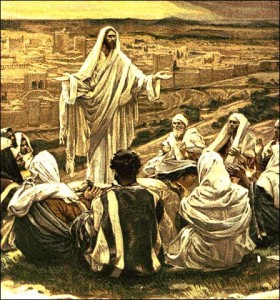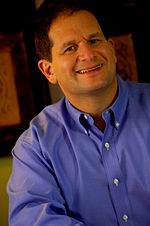 We are continuing our section by section look at the “Lord/Disciples’ Prayer” through the lens of Kingdom Theology. If you are just now joining us, you can find the intro and first section here and the second section here.
We are continuing our section by section look at the “Lord/Disciples’ Prayer” through the lens of Kingdom Theology. If you are just now joining us, you can find the intro and first section here and the second section here.
Our father in heaven,
May your name be honored,
May your kingdom come,
May your will be done
As in heaven, so on earth.
Give us today the bread we need now;
And forgive us the things we own,
As we too have forgiven what was owned to us.
Don’t bring us into the great trial,
But rescue us from evil.
-Matthew 6:9-13, The Kingdom New Testament
Now on to the last section of the prayer:
“And forgive us the things we own, As we too have forgiven what was owned to us”
The context of this prayer makes it clear that the phrase “things we own” is a veiled reference to sin. Right after this prayer, St. Matthew writes a little blurb about the forgiveness of sin in our lives. St. Luke goes further and includes the term sin in his version of the prayer, “forgive us our sins.” Knowing that Jesus was talking about sin and not owning people money or other such items is very important in understanding this prayer.
Under the Temple system, if you messed up and did something cruel or mean towards a follow human, you were supposed to do two things. First you go to the Temple and offer a sin sacrifice so that God the Father would forgive you and cleanses you from your sin. The priest would then tell you what would need to be done to make things right with your neighbor, i.e. replace the item stolen, asking for forgiveness, etc.
In Jesus’ end-time declaration that the Kingdom of God had come, he shifts things up a bit. Now instead of having to go to the Temple to get forgiveness for our sins, we could be forgiven by Jesus anywhere at any time! Furthermore, our forgiveness from the Father was tied to our actions of forgiving those who sinned or hurt us! This was a radical, redefinition of forgiveness and sin that removed the Temple and the priests from the equation – something that was prophesied to happen on the Day of the Lord came.
“Don’t bring us into the great trial, But rescue us from evil”
Judgment was one of the key components of the coming of God’s Kingdom. The majority of folks at the time tended to think of this judgment as coming against the pagan Romans, as we looked at previously. Jesus, in keeping with the tradition of the prophets of old, is telling his followers that they are to pray for safety and salvation as they walk through this hoped for, but dreaded day. As prophet Joel said,
“Woe to you who long for the Day of the Lord! Why do you long for the day of the Lord? That day will be darkness, not light. It will be as though a man fled from a lion, only to meet a bear, as though he entered his house and rested his hand on the wall, only to have a snake bite him. Will not the Day of the Lord be darkness not light – pitch-dark, without a ray of brightness?” – Amos 5:18-20
Think about the ten plagues in Egypt or the flood that swept over the earth during the days of Noah. In the middle of both events the people of God were protected from the evil one and the judgment God unleashed upon him. Jesus, in keeping with his end-time declaration on the Day of the Lord, is telling his disciples to pray that they will be like Noah and his family or the Israelites in Egypt – diligently obeying the Creator King despite the persecution and pain that came from the people around them.
By now I hope you can see the amazing Kingdom message within this prayer. It may take a little bit of reading and re-thinking to unbury the end-time Day of the Lord message from underneath the layers of cultural baggage. But when you do, you will see why followers of Jesus have kept this prayer close to their hearts throughout history. It is an end-time petition for strength and encouragement to keep on declaring the message of the Kingdom as commanded by Jesus, the King of Kings.





